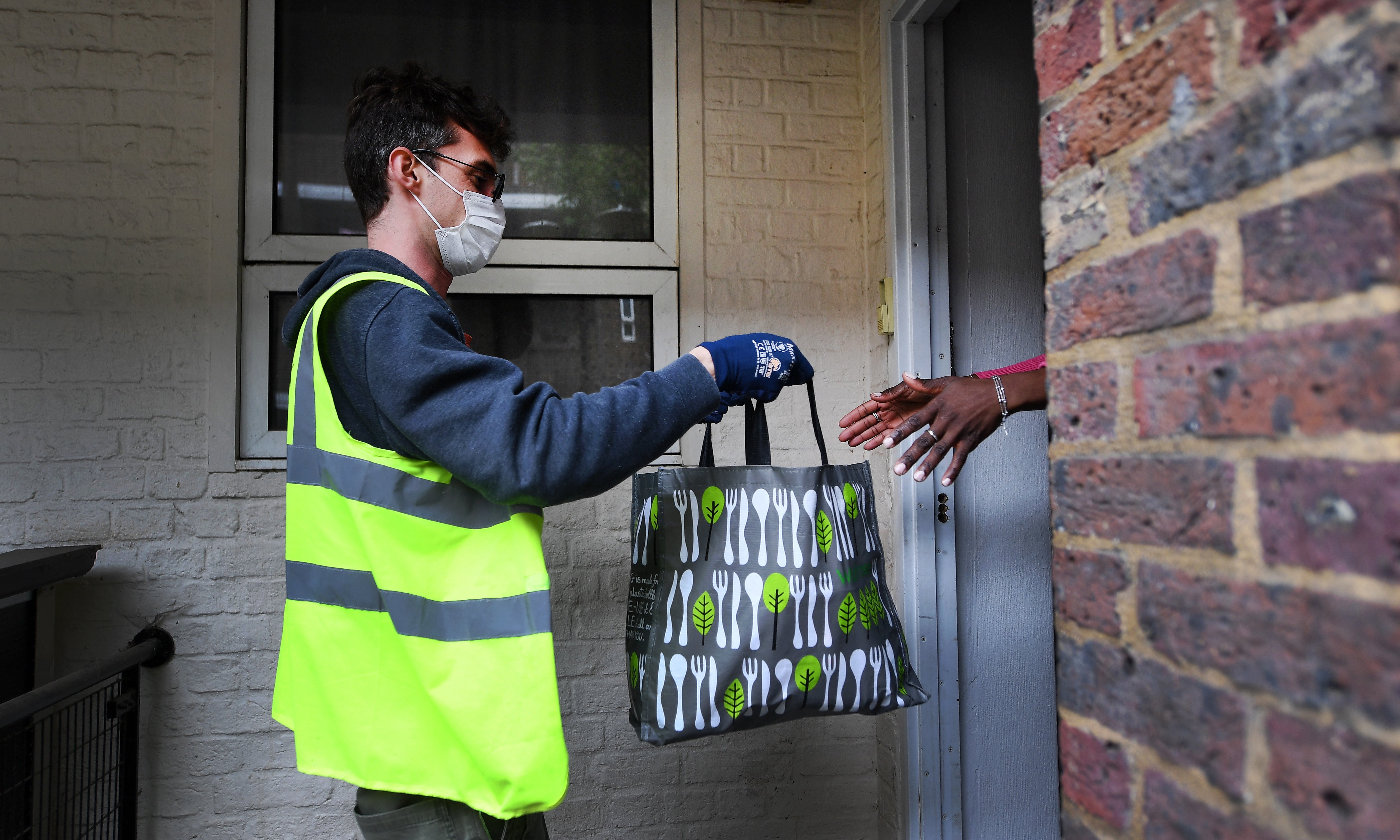Pressure on Rishi Sunak to retain £20 benefit boost, as report shows poorest hit hardest by Covid
Ministers risk legacy of ‘worsening hardship’, warns Joseph Rowntree Foundation

The poorest people in the UK have borne the brunt of the economic fallout from coronavirus and risk being the least able to recover when the pandemic ends, a new report has warned.
Anti-poverty organisation the Joseph Rowntree Foundation said that the situation uncovered by its annual state of the nation report amounted to a “damning indictment” of society.
They called on chancellor Rishi Sunak to dump his plan to cut a £20-a-week temporary uplift to universal credit payments in April, as the first step in a plan to prioritise the poorest in efforts to rebuild the economy after Covid.
Today’s UK Poverty 2020/21 report found that even before the start of the pandemic, incomes among the poorest parts of society were already falling, due to benefit freezes, cuts in hours and limited opportunities to progress at work.
Almost a quarter (23 per cent) of workers in the lowest-paid sectors, such as retail, were living in poverty, with women, young people and ethnic minorities most likely to be affected. Rates of poverty among workers of Bangladeshi and Pakistani origin, at 35 per cent, were three times the rate for their white counterparts.
When the pandemic hit, the lowest-earning workers experienced the largest average cut in hours, with 81 per cent in the poorest-paid sectors seeing their income cut.
Workers from black and ethnic minority backgrounds were 14 per cent more likely to be made unemployed and 13 per cent less likely to be furloughed, while 45 per cent of disabled people who were in employment at the start of the crisis were receiving no earnings by the middle of the year.
One in three renters were furloughed and 30 per cent said they were worried about paying their rent, with 700,000 in arrears by October.
Now four in 10 workers on the minimum wage face a high or very high risk of losing their jobs, compared to just 1 per cent of those earning more than £41,500 annually, the report found.
The Foundation warned that unless ministers make poverty a priority in 2021 they risk “being defined by a record of worsening hardship”.
Melanie, a former HR consultant from Surrey, who was made redundant in the financial crash and set up her own business only for it to be forced to close due to the first lockdown, told the report prospects for work were now “bleak”.
“I know this lockdown is necessary but it’s also another thing to battle through after all the struggles of the last year, and I want the system to work much better for people in my position once we get through this,” she said.
“One thing that has helped a little is the temporary £20-a-week uplift in Universal Credit. That extra £20 didn’t go that far but it did make a difference. I always needed that extra money to get me through.”
JRF director Helen Barnard said: “It is a damning indictment of our society that those with the least have suffered the most before the pandemic and are now being hit hardest once again by the pandemic. The government must now make the right decisions to avoid another damaging decade.”
A government spokesman said: “We are committed to supporting the lowest-paid families through the pandemic and beyond to ensure that nobody is left behind.
“That’s why we’ve targeted our support to those most in need by raising the living wage, spending hundreds of billions to safeguard jobs, boosting welfare support by billions and introducing the £170 million Covid Winter Grant Scheme to help children and families stay warm and well fed during the coldest months.”




Join our commenting forum
Join thought-provoking conversations, follow other Independent readers and see their replies
Comments